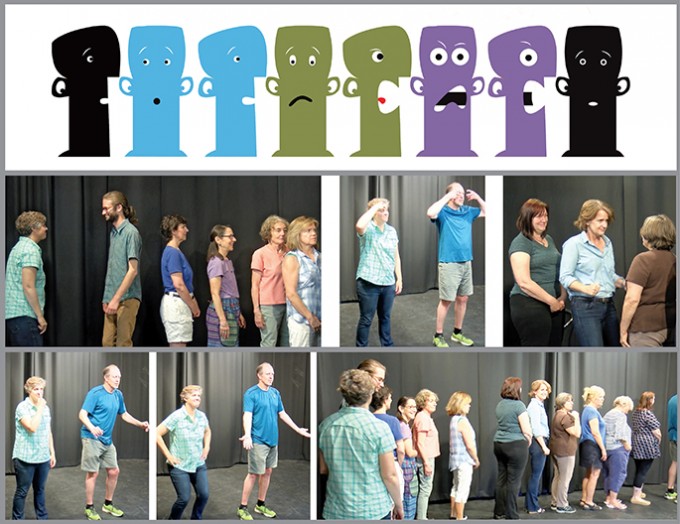Feature
The Patient Handoff Game
For smoother report and fewer communication glitches, borrow team exercises from improv theater

You’re a bedside nurse, so handoffs are part of your daily routine. Most of the time, they’re just that — routine. Sometimes, though, important details get lost in translation.
Consider this fictional scenario:
Last night, Jill, a staff nurse on the med-surg floor, admitted a male patient named Smith through the emergency department. At the time of the transfer, the ED nurse told Jill that Mr. Smith had reported persistent vomiting and a 102-degree fever. Although the ED nurse made no mention of other symptoms, the patient’s wife mentioned to Jill that Mr. Smith’s left shoulder had also been bothering him.
Tonight, on her way into the unit to begin her 11–7 shift, Jill sees Mrs. Smith on a couch in the waiting area, crying. Jill stops to ask what’s wrong and Mrs. Smith says, “They just rushed my husband into surgery for some kind of heart problem. I’m so worried!”
Jill thinks back over the previous handoffs: the transfer from the ED and her own handoff to the day nurse. Did the ED nurse tell her about the shoulder pain or was it only the patient’s wife? Did Jill think to mention it to the day nurse to follow up? Jill isn’t sure, but now the patient may suffer for this communication lapse.
In the above scenario, an important bit of information was lost during one or more handoffs: Mr. Smith’s shoulder pain, which was probably a symptom of his heart trouble. We can see several points where that information may have been omitted.
The Smiths may not have mentioned the pain to the ED nurse (and Mrs. Smith may not even have been present for the initial assessment).
The ED nurse may not have thought to mention it in her report. Jill may have forgotten to mention it to the day nurse. The day nurse might not have thought it important enough to follow up.
Wherever the lapse occurred, it caused the care team to miss a potentially vital detail, costing Mr. Smith valuable time. With life-threatening conditions like cardiac arrest or stroke, any delay could mean the difference between life and permanent impairment or death.
Communication Pitfalls
As the Institute of Medicine illustrated in their landmark 1999 report, To Err Is Human, handoff errors are a major contributor to adverse events, from medication errors to patient death.
The Joint Commission has even issued a Sentinel Event Alert (No. 58) about communication errors and how to avoid them. (You can download it from www.jointcommission.org)
While it’s easy to point fingers when such errors occur, the reality is that handoffs, like all human interactions, are often messy, fluid and subjective. Even if you say all the right things, the listener might miss important details. Maybe you spoke too quietly in a noisy environment. Maybe the listener got overwhelmed. Maybe they just didn’t grasp that something was important until it was too late.













